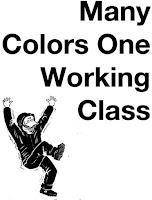Five families are netting millions of pounds by controlling nearly half of Scotland’s offshore fishing rights.
Greenpeace today reveal how these so-called “Codfather clans” are reaping huge rewards exploiting “a vastly unequal, mismanaged system”.
The quotas system enables a minority of wealthy families to corner huge swathes of fishing rights. Three of the dominant family-owned firms are based in Scotland.
Peterhead’s Alexander Buchan and family, with an estimated net worth of £147million. Their Lunar Fishing Company own or control 8.9 per cent of quota holdings (739,153 FQA – Fixed Quota Allocations).
Fraserburgh's Robert Tait’s family have an estimated worth of £115million. Their Klondyke Fishing Company are the UK’s third-largest quota holders with 6.1 per cent of the UK total (506,953 FQAs). Greenpeace’s investigation unit, discovered they paid out dividends of £56million in five years.
Oil and gas billionaire Sir Ian Wood still has a strong foothold in the family’s original fishing business. Their family firm JW Holdings hold one per cent of the UK’s fishing quota (83,463 FQAs) and minority investments in businesses/partnerships with a further 2.3 per cent (192,169 FQAs).
Two other family-owned firms in England are netting a slice of Scotland’s fishing stock.
Plymouth-based Jan Colam and family, with an estimated worth of £130million, own Interfish, the second largest quota holders, with 7.8 per cent of the UK total (643,927 FQAs).
And Andrew Marr and family, worth £209million, at Hull-based Andrew Marr International, own or control 5.1 per cent of UK quota (419,937 FQAs), making them the UK’s fifth largest. They also have minority stakes in companies and vessel partnerships who hold a further 5.4 per cent of UK quota (445,981 FQAS).
Charles Millar, executive director of the Sustainable Inshore Fisheries Trust, said: “The misallocation of fish quotas in Scotland’s fishery, as unearthed by Greenpeace, is now plain to see. The vast majority of the fleet have almost no quota to work with while a handful of multi-millionaires hold enough to make them even richer."
In Scotland, quotas for species such as herring and mackerel have been bought up by a handful of families. Two-fifths of the entire Scottish catch by value, and 65 per cent by tonnage, was landed by 19 powerful super-trawlers in 2016. Small-scale coastal fishermen, who operate 80 per cent of Scottish boats, have to make do with just one per cent of quotas.
https://www.dailyrecord.co.uk/news/scottish-news/five-wealthy-families-uk-codfathers-13397619
 Perhaps the most disturbing thing Mr. Happy-Go-Lucky said were his words of warning for Canadians: ”The global financial system is intimately connected, like the neural networks of the brain. At all times the world’s 300 or so biggest banks, including Canada’s Big Six, have enormous short-term loans outstanding to each other. Which means that the failure of just one giant financial institution could bring them all down”.
Perhaps the most disturbing thing Mr. Happy-Go-Lucky said were his words of warning for Canadians: ”The global financial system is intimately connected, like the neural networks of the brain. At all times the world’s 300 or so biggest banks, including Canada’s Big Six, have enormous short-term loans outstanding to each other. Which means that the failure of just one giant financial institution could bring them all down”. 















